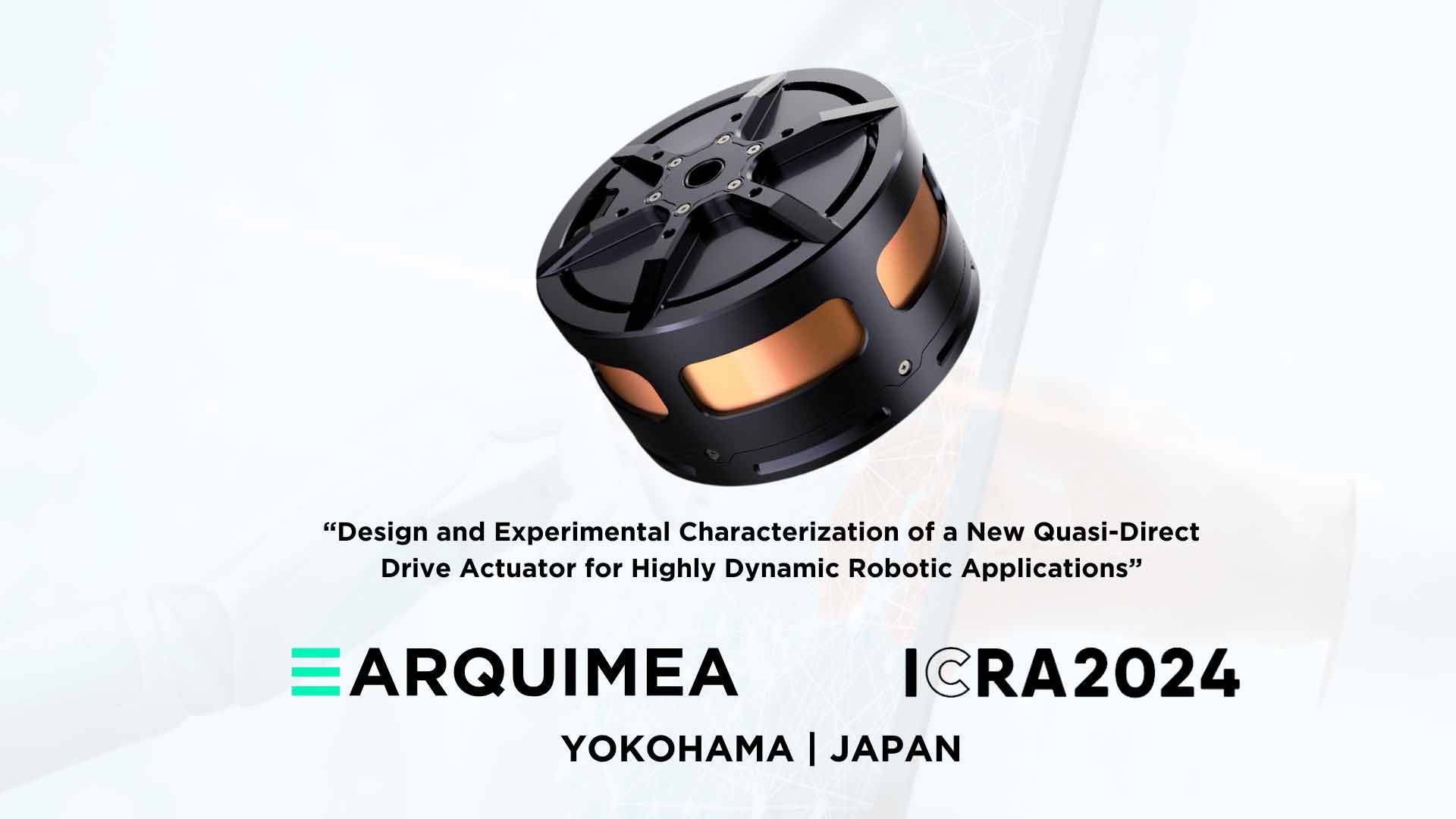- Sectors
- Aerospace & Defense
- Big science
- Fintech
- Insights

San Cristóbal de la Laguna, February 2024
The paper “Design and Experimental Characterization of a New Quasi-Direct Drive Actuator for Highly Dynamic Robotic Applications”, submitted by ARQUIMEA researchers, has been accepted for publishing on the International Conference on Robotics and Automation that will be held in Yokohama, Japan (May 13th-17th).
The paper presents our latest findings in the design and experimental results of a quasi-direct (QDD), high bandwidth, proprioceptive actuator intended for highly dynamic robotic applications, primarily focusing on the physical human-robot interaction.
The IEEE International Conference on Robotics and Automation (ICRA), organized by the IEEE Robotics and Automation Society, is the most important global event in the robotics area. Each year, it brings together the most relevant players in the industry: academics, researchers, and industry stakeholders, to discuss the latest innovations and advances in the robotics field.
This achievement highlights the quality and relevance of the research carried out by the Robotics Orbital at ARQUIMEA Research Center, consolidating its position at the forefront of innovation in the field of robotics and automation. Miguel López Estévez, principal investigator of the robotics orbital qualifies this milestone for ARQUIMEA:
“This paper summarises the results of 2 years of R&D aimed at creating enabling technology to boost the dynamic performance of robotic systems. Nowadays robotic hardware presents important limitations in terms of dynamic behaviour. It is necessary to develop new actuation technology capable of providing great agility with high efficiency.”
This publication is also an important milestone for the EU co-funded project QCIRCLE, whose goal is to create a leading center of excellence in Spain, researching on several disruptive technologies such as quantum, robotics, biotechnology and Artificial Intelligence.
“Funded by the European Union. Views and opinions expressed are however those of the author(s) only and do not necessarily reflect those of the European Union. Neither the European Union nor the granting authority can be held responsible for them.”
